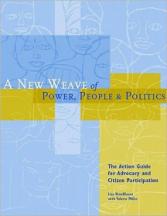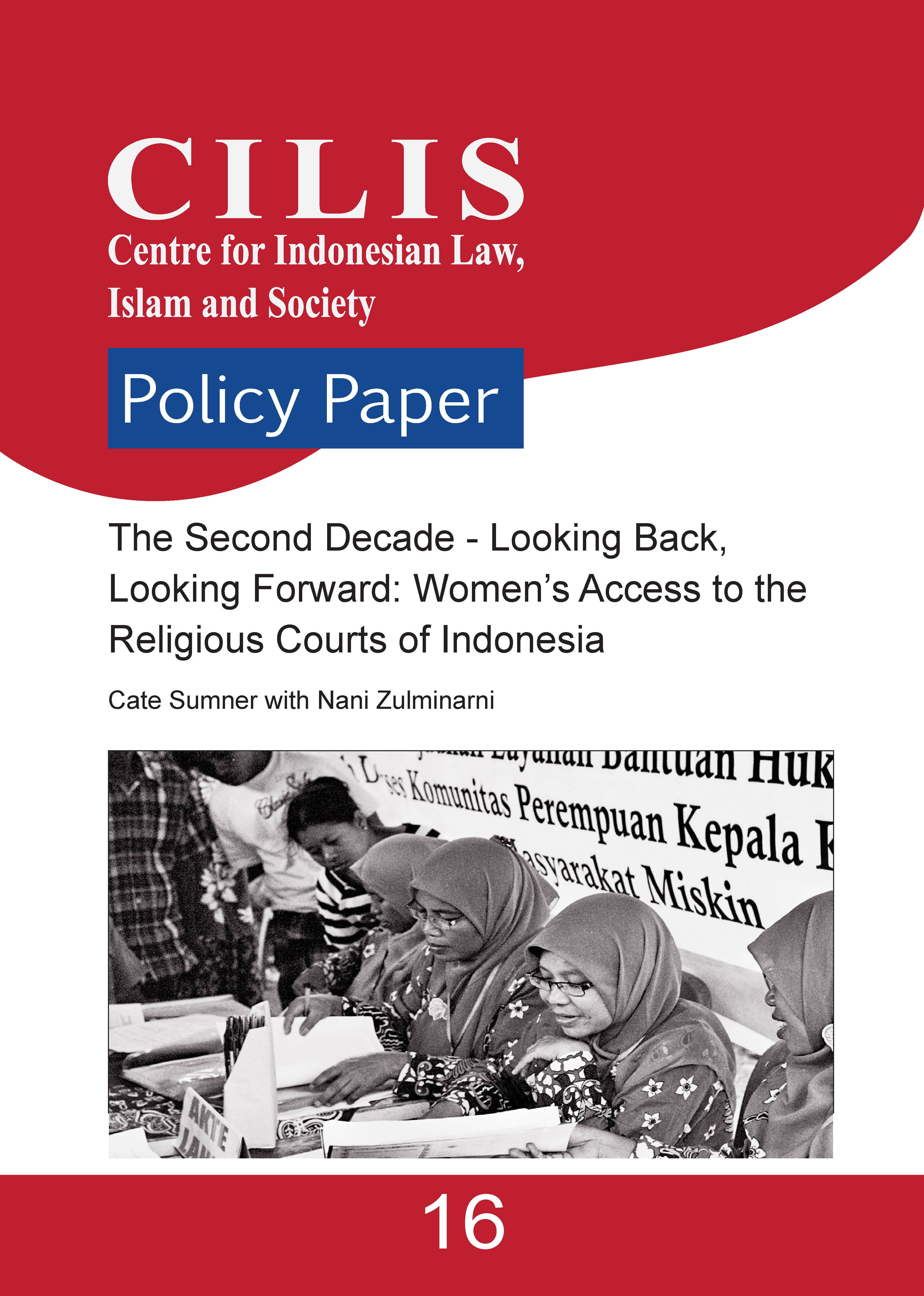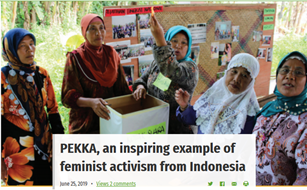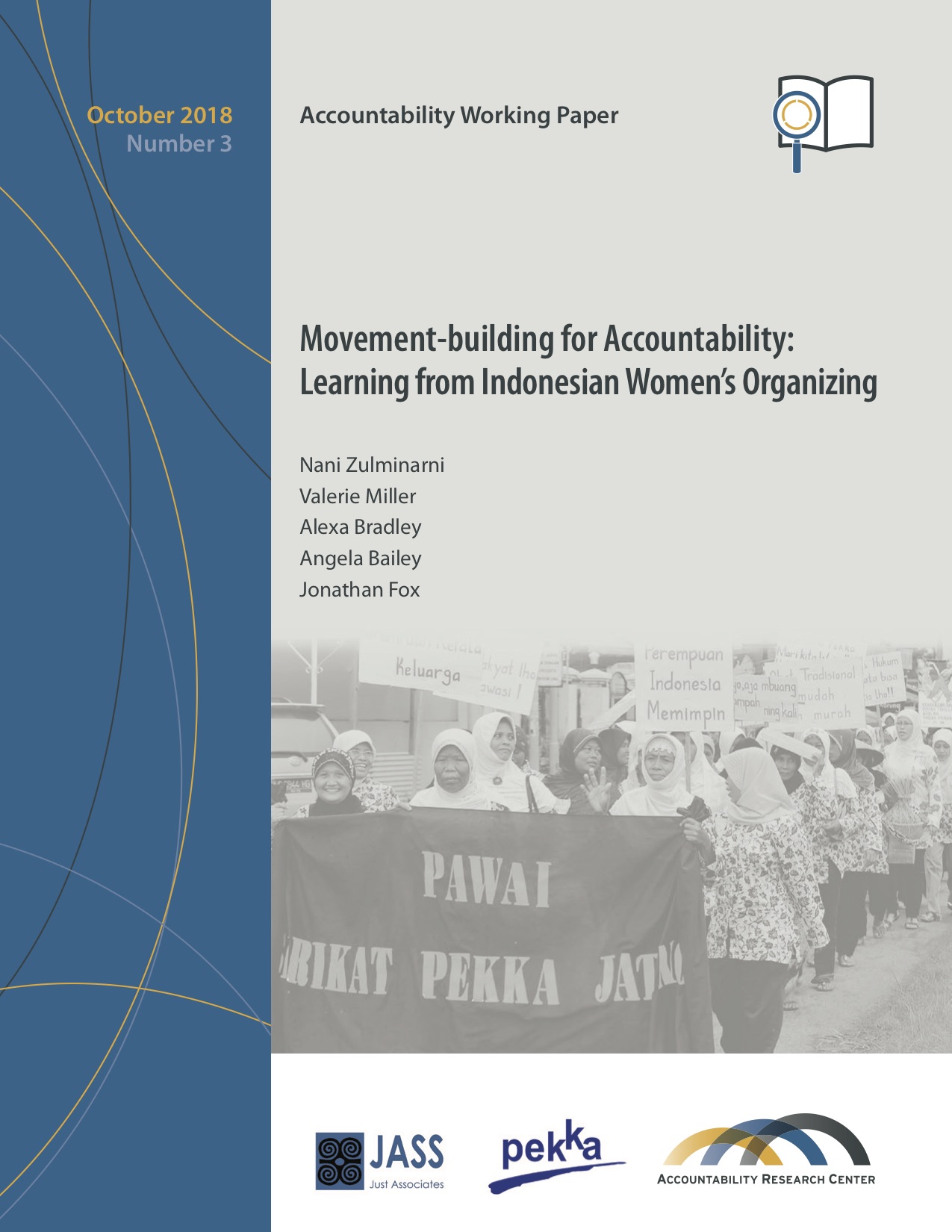
Movement-building for Accountability: Learning from Indonesian Women’s Organizing
Date: October 2018
Authors: Nani Zulminarni, Valerie Miller, Alexa Bradley, Angela Bailey, and Jonathan Fox
Publication type: Working Paper
Published by: Accountability Research Center, Just Associates, and PEKKA
Perempuan Kepala Keluarga (Women-Headed Family Empowerment, known as PEKKA) is an Indonesian organization whose work is rooted in a vision of women’s collective power and participation for social change. Since 2001, PEKKA has addressed entrenched social exclusion through popular education, intensive leadership development, and social accountability and policy advocacy. Thousands of marginalized women have overcome stigma and entered the public sphere to engage in politically savvy, sustainable collective action. This emphasis on autonomous grassroots voice is grounded in 2,559 village-level cooperatives that are also scaled up to district, provincial and national levels (PEKKA 2017).
PEKKA’s combination of national advocacy with grassroots organizing and countervailing power has influenced national social programs and broadened women’s access to the legal system. Improved access to the courts allows women to obtain legal documentation of their own civil status. This allows women to legalize a marriage that was valid under Islamic law or file a divorce case that will enable her to be recognized as the head of her family. The experience of gaining legal documents may build the knowledge and confidence required to obtain a birth certificate for their children, thereby securing opportunities and access to social services, including education, for the next generation.
PEKKA engages in cross-sector alliance-building with local government, Islamic authorities, national policymakers, and international development agencies. This creates the political space and legitimacy needed to navigate complex cultural and political dynamics and deflect those forces opposed to public accountability and social inclusion. PEKKA’s grassroots members promote social accountability, monitoring access to services and solving problems through collaborative engagement with authorities—though without using those terms.
What makes PEKKA’s approach to social accountability distinctive is its emphasis on building a broad, autonomous social base as the foundation for projecting grassroots women’s voices, combined with its multi-level approach to advocacy. PEKKA takes scale into account by engaging with authorities from the village level to national and international levels. PEKKA’s long-term efforts to build a broad-based organization with more than 31,447 members have brought fresh and reimagined language, analysis, and strategy ideas to the transparency, participation, and accountability (TPA) field. Key lessons from PEKKA’s accountability strategies include the following:
- Address underlying institutional and cultural causes of social exclusion to create the confidence and space needed for women to exercise their voices and take collective action.
- Use economic empowerment to build social foundations for autonomous voice and civic engagement.
- Build countervailing power through action strategies that scale up member voice, leadership skills, and opportunities for participation in all aspects of the work.
- Produce diverse forms of evidence for multiple audiences to advance advocacy strategies and maximize impact.
- Cultivate allies and relationships inside and outside government, and at multiple levels, to expand impact and deflect opposition.
Bahasa Indonesia version: Membangun Gerakan Untuk Akuntabilitas: Belajar dari Pengorganisasian Perempuan Indonesia
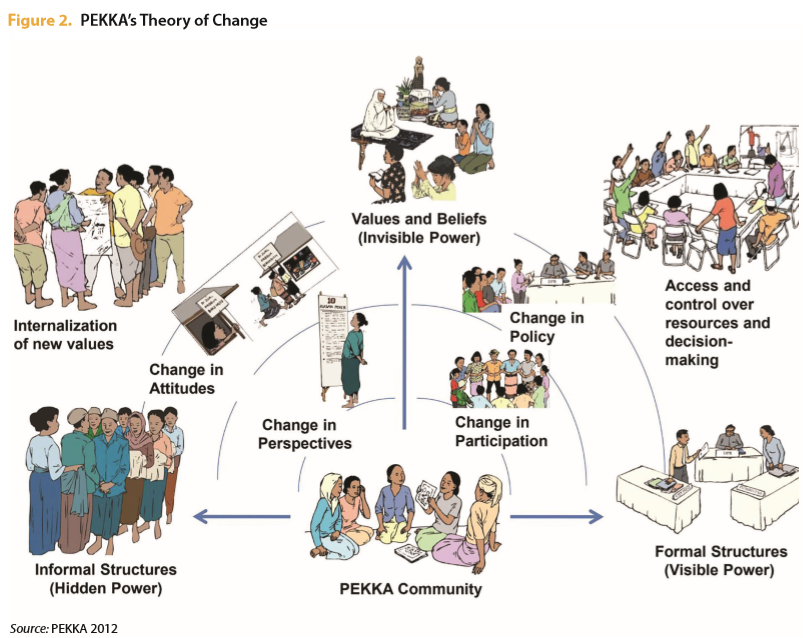
Nani Zulminarni Nani Zulminarni is Founder and Director of Perempuan Kepala Keluarga (PEKKA, Women-Headed Family Empowerment). An Indonesian gender and development specialist with a master’s degree in Sociology, Nani has more than 30 years of experience as a popular educator, feminist and activist working for women’s social, economic and political empowerment. She also serves as President of the Asia South Pacific Association for Basic and Adult Education (ASPBAE) and is a founder and advisor of Just Associates Southeast Asia. For more on Nani, see: https://justassociates.org/en/bio/nani-zulminarni. Valerie Miller Valerie Miller has worked in advocacy, international development, gender, and human rights for more than 35 years. She has collaborated with grassroots organizations, social movements, non-governmental organizations (NGOs), and international agencies as an organizer, advocate, popular educator, evaluator, and researcher. For more on Valerie, see: https://justassociates.org/en/bio/valerie-miller. Alexa Bradley Alexa Bradley has worked as an organizer, facilitator, organizational strategist and popular educator for over 25 years, with a particular focus on linking community organizing to broader social movement strategies. As the JASS Knowledge Development Coordinator, she supports the organization to both capture and deepen learning from its work internally and share insights from its practice with a broad audience of global activists. For more on Alexa, see: https://justassociates.org/en/bio/alexa-bradley. Angela Bailey Angela Bailey joined ARC in August 2016 after a decade of working for several international NGOs designing and implementing programs. Prior to joining ARC, Angela was Director of a health accountability program in Uganda. She holds a master’s degree from Columbia University School of International and Public Affairs (SIPA). Jonathan Fox Jonathan Fox is a Professor in the School of International Service at American University and Director of ARC. His books include Accountability Politics: Power and Voice in Rural Mexico (Oxford 2007) and Mexico’s Right-to-Know Reforms: Civil Society Perspectives (co-editor, Fundar/Wilson Center 2007). He collaborates with a wide range of public interest groups, social organizations and policymakers and currently serves on the boards of directors of Fundar (Mexico) and the Bank Information Center (Washington DC). For online publications, see http://jonathan-fox.org/.

